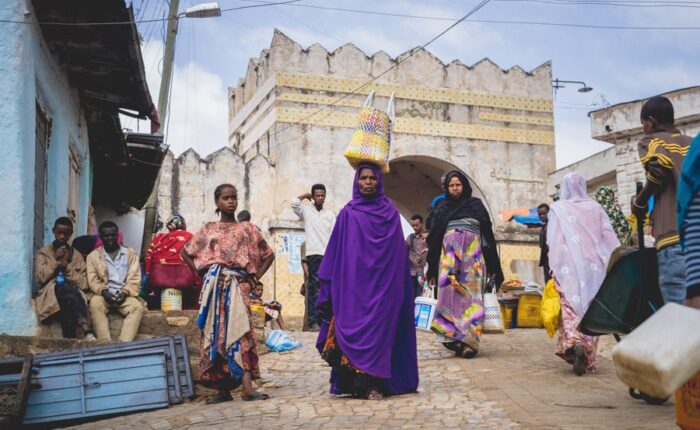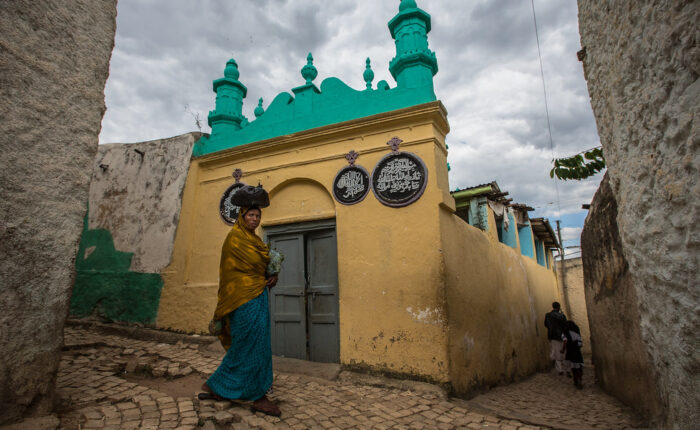Harar, often called “the City of Saints” or “Africa’s Mecca,” is a historic gem nestled in the eastern part of Ethiopia. This ancient city is a UNESCO World Heritage Site and holds a unique place in the country’s history and culture. Stepping into Harar is like stepping back in time, with its well-preserved old town, centuries-old traditions, and vibrant atmosphere that has captivated travelers for centuries.
History and Heritage
Ancient Origins
Harar is one of Ethiopia’s oldest cities, believed to have been founded in the 7th century. Its strategic location on trade routes made it a melting pot of cultures, attracting traders, scholars, and travelers from across Africa, the Middle East, and beyond.
City of Walls
One of the most striking features of Harar is its ancient walls. Built between the 13th and 16th centuries, these stone walls with their towering gates have stood the test of time. The city within the walls is a labyrinth of narrow alleys, colorful markets, and traditional houses adorned with wooden doors and intricate designs.
Multicultural Heritage
Harar is known for its diverse population, which includes Muslims, Christians, and people from various ethnic groups. The city’s culture is a blend of Ethiopian, Islamic, and even Indian influences, reflected in its architecture, cuisine, and customs.
Things to See and Do
Juma Mosque
The Juma Mosque, built in the 16th century, is one of the oldest mosques in Ethiopia and a significant religious site. Its elegant minarets and beautiful courtyard are open to visitors.
Arthur Rimbaud House
French poet Arthur Rimbaud lived in Harar for a time, and his house has been preserved as a museum. It offers insight into his life and work during his stay in the city.
Hyena Feeding
One of the most unique and famous attractions in Harar is the nightly hyena feeding ritual. Local “hyena men” hand-feed hyenas raw meat just outside the city walls, a tradition that has been going on for generations.
Markets and Bazaars
Harar’s markets are a bustling hub of activity, filled with the sights and sounds of daily life. The colorful market stalls offer everything from spices and textiles to traditional crafts and souvenirs.
Harari Cultural Center
This center provides a deeper understanding of Harari culture, history, and traditions. Visitors can learn about the city’s unique customs, including its traditional clothing, music, and coffee ceremonies.
Unique Traditions
Coffee Culture
Ethiopia is the birthplace of coffee, and Harar has a rich coffee culture. Enjoying a traditional coffee ceremony, where beans are roasted and brewed in front of guests, is a must-do experience.
Harari Cuisine
Harari cuisine is a delightful blend of Ethiopian and Middle Eastern flavors. Try local dishes like “foul,” a savory fava bean stew, or “ja,” a spicy meat dish, served with injera, the traditional Ethiopian flatbread.
Harari Clothing
The traditional clothing of Harar is colorful and distinctive. Women often wear brightly colored dresses and headscarves, while men don white robes and turbans. Exploring the markets, you’ll see these vibrant textiles on display.
Best Time to Visit
Harar can be visited year-round, but the dry season from October to March is generally the most comfortable. The city’s religious festivals, such as the Maulid celebration of the Prophet Muhammad’s birthday, are vibrant times to experience local culture.


